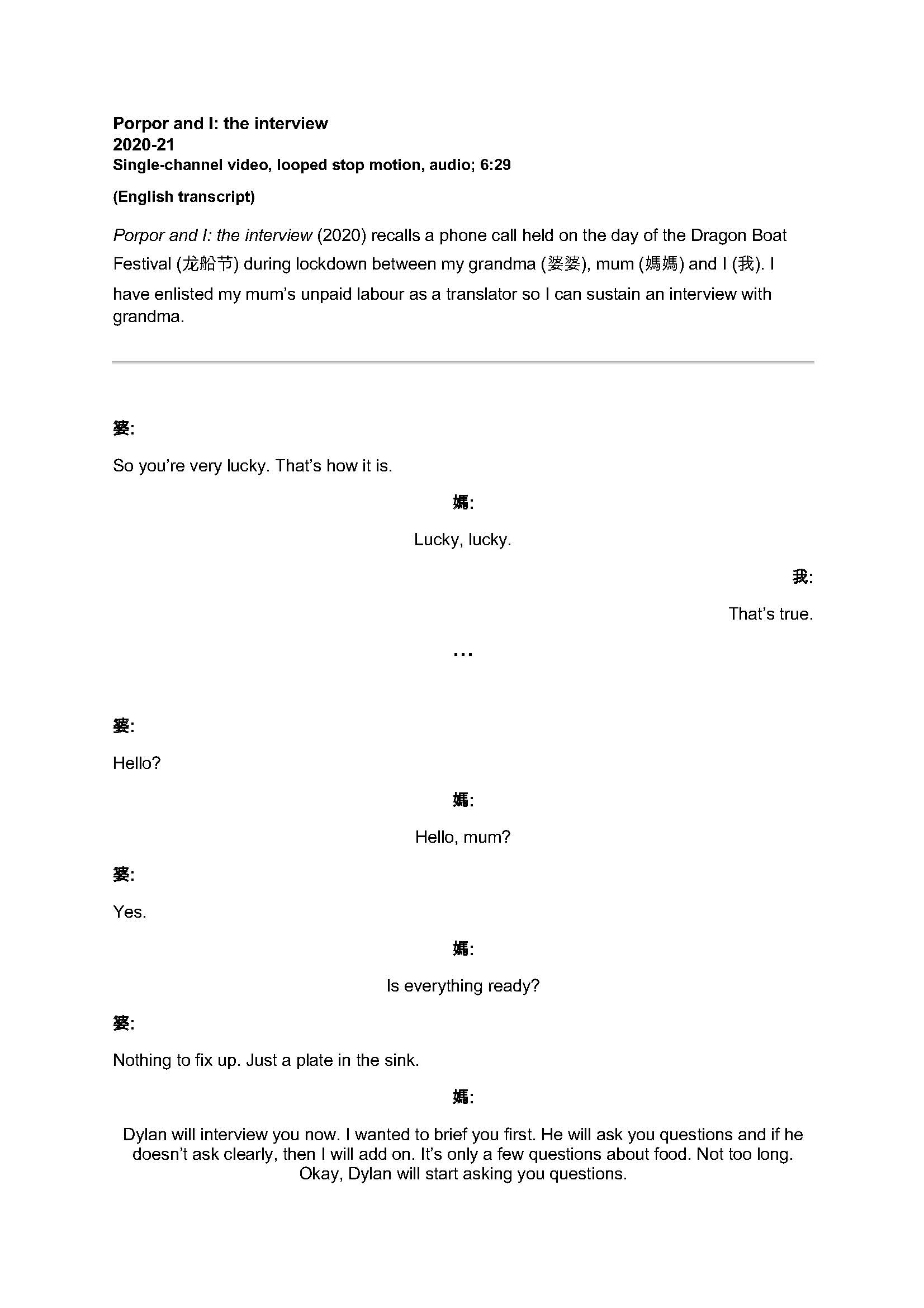
Dylan Goh is an artist-curator working on unceded Bidjigal and Gadigal lands.
His creative practice (encompassing socially engaged initiatives, ceramics and installation) is grounded in holding agency over how cultural narratives are represented. Speaking to experiences as a 2nd generation Asian Australian caught between two worlds, Dylan leverages storytelling and participation to disarm audiences, engender empathy and transfer knowledge.
Dylan is currently curating "吃饭 (Chi-Fan)" - an online culinary database tracing the intimate stories and migration of food recipes across the contested "Chinese diaspora". During the 2021 Lunar New Year (a period marked by global lockdowns and separated families), he completed a public mural with his Hurstville community inscribed with timely messages of hope and yearning. In 2020, he was awarded the New Colombo Plan Fellowship for South Korea to specialise in intangible cultural heritage. He also curated #mealtimewithdilly" - an online exhibition amplifying connections between food, memory and culture during the pandemic – and was a finalist in the Kudos Emerging Artist + Designer Award.
Dylan is currently mentoring under Asian Arts curator Min-Jung Kim at the Museum of Applied Arts and Sciences. He has 6 years' experience across curatorial, visitor services and educational roles across the Museum of Contemporary Art, City of Sydney, Kil.n.it Experimental Ceramics Studio, UNSW Art & Design and 4A Centre for Contemporary Asian Art.
PORPOR AND I: THE INTERVIEW,
(2020-21) recalls a phone call between grandma (婆婆), mum (媽媽) and I (我) during lockdown on the day of the Dragon Boat Festival (龙船节). I have enlisted my mum's unpaid labour as a translator so I can sustain an interview with grandma.
The annual Dragon Boat Festival typically involves the gathering of family to eat zongzi (粽子) - a glutinous rice dish stuffed with ingredients and wrapped in bamboo leaves. In 2020 however, we went from weekly dinners with sixteen people at grandma's place to mandated separation.
Through looped stop motion, the video retraces the laborious process of wrapping and stringing zongzi; my grandma makes no less than thirty in each batch. Initially obscured in a wispy haze, the zongzi comes into greater clarity as we discuss: my grandma's childhood; the nine steps of making sugarcane water; and grandpa counting heads at Friday dinner. The zongzi's gradual appearance parallels my realisation on the significance behind the ad-hoc deliveries I make to various aunties with takeaway containers and juice bottles refilled with grandma's cooking.
For me, "Porpor and I: the interview" is a sobering journal entry on my ineptitude to communicate with my grandma and the reverberating impacts of lockdown on families. It speaks to the disappearance of language with each generation, and food as a vehicle for love amidst isolation.
Note: work can be read with the accompanying English transcript









